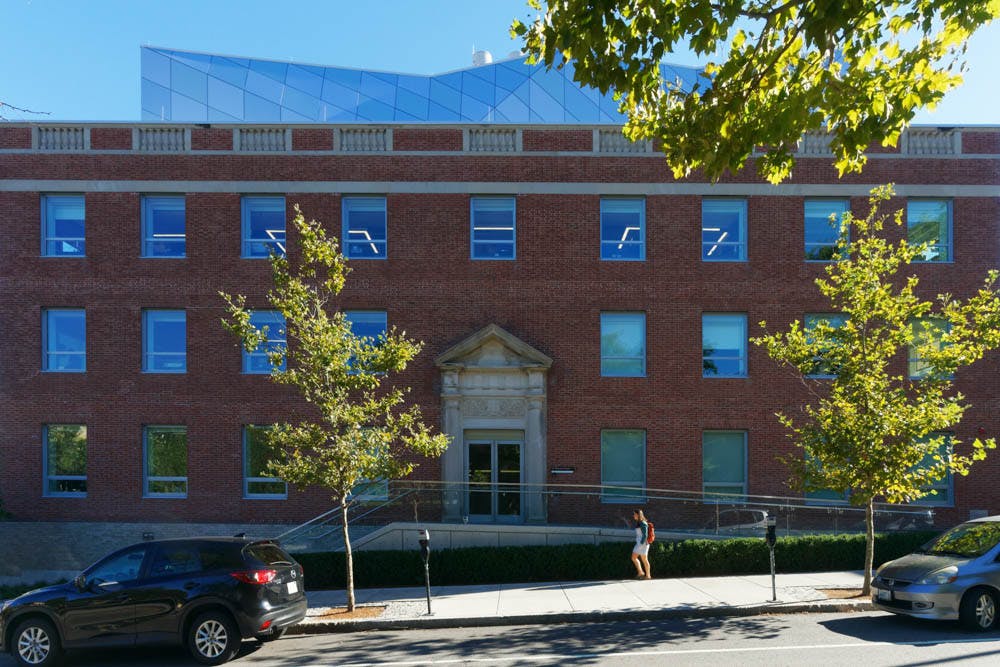The Program for Environmental and Civic Engagement, a new initiative of the Institute at Brown for Environment and Society, brought together IBES and the Jonathan M. Nelson Center for Entrepreneurship for the first time. Announced in October, the collaborative project aims to assist students’ development of entrepreneurial solutions to environmental issues by providing them with resources, including funding and advising.
PECE was created in the wake of a fundraising effort by the leadership of IBES, after which Director of IBES Amanda Lynch approached Stephen Porder, associate professor of ecology and evolutionary biology and environment and society, to lead the project’s development, Porder said. Porder, who teaches the introductory course ENVS 0490: “Environmental Science in a Changing World,” knew he could advise students on how pressing particular environmental concerns are, Porder said. But for entrepreneurial expertise, Porder approached the Nelson Center about collaborating on PECE.
While many students in the Environmental Studies and Science concentrations are already considering ways to solve environmental problems, they might not “see anything at the nexus of entrepreneurship and solutions,” Porder said. “It’d be really great if we could incentivize a broader group of students — not just students who come at it from an environmental perspective, but people who come at it from an entrepreneur perspective, to think about these issues,” he added.
Porder’s early conversations with directors of the Nelson Center focused on how PECE could take advantage of resources and grant programs the center already offered. Part of the Nelson Center’s philosophy is defining “entrepreneurship as this methodology for solving problems,” said Daniel Warshay ’87 P’20, executive director of the Nelson Center. This methodology consists of three steps: defining a problem or an “unmet need,” developing a value proposition and creating a sustainability model. The Nelson Center supports the early steps of this process through its Explore and Expand grants, which award students up to $500 and $2,500, respectively.
Warshay and Jonas Clark, associate director of the Nelson Center, shared this model with Porder, who “was eager to collaborate with us within the structure that we’ve already established more broadly,” Warshay said.
The Nelson Center is also excited about the collaboration. “The combination of IBES’ expertise and ours yields opportunities together that probably wouldn’t have seen (the) light of day, and we’re happy to catalyze a lot of those,” Warshay said. “We’re all nurturing seedlings together. They just have some thematic overlap here.”
While the Nelson Center’s grants might seem small, particularly when compared to huge initial investments of other startups across the country, the center has a reason for limiting them. “The hard adage is fail fast, fail cheap,” Warshay said. These grants are “not intended to cover everything. They’re intended to catalyze a process. … (They’re) nowhere near enough, typically, to get (students) to the finish line, but it might get them to the starting line, with some more confidence and more understanding of the problem they’re looking to solve.”
If students wish to continue their venture after using the Nelson Center’s grants, the money IBES raised and dedicated to PECE will support students’ future steps.
PECE is still in the stage of taking applicants. Students are encouraged to meet with both Porder and Clark to develop and refine their ideas prior to applying for an initial Explore grant. Between these two mentors, applicants can assess the potential impact of their idea, make connections with experts on the specific environmental issues they seek to address, anticipate potential challenges and outline future steps.
When meeting with Explore grant applicants, Clark said he looks for a few different things. “One is that someone is really, genuinely interested, and you can see that they’re really enthusiastic about diving into this,” he said. And while students don’t necessarily have to be far along in the development process, “they have to have some reasonable clarity about the problems that they want to solve, and also a sense of what they could need to do in order to get further clarity about it.”
David Schurman ’20, a prospective double concentrator in engineering and computer science, recently received an Explore grant. Schurman’s project uses drones and lightweight but powerful air quality sensors in hopes of creating the means to gather good air quality data, especially in locations where it is difficult to capture such information through traditional means, such as satellites. Consulting with both Porder and Clark helped Schurman develop his idea from “just a project” to something with the potential for a much larger impact, he said.
“Environmental solutions … don’t really get as much credit as other things,” Schurman said. “People have problems finding ways for it to be profitable, because when your motive is something more like, ‘We’re going to do this for the good of the earth, or the good of all of us,’ it’s not like a normal business where you start from the first principles of making money. That’s not always what’s most important. So it’s good to have support from these kinds of things.”





